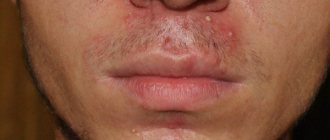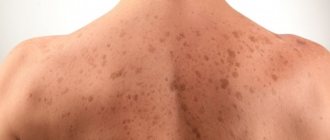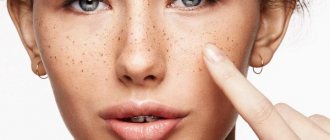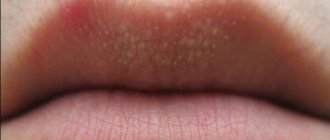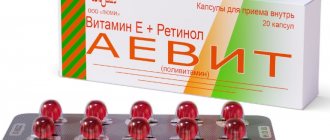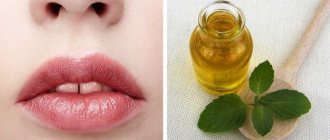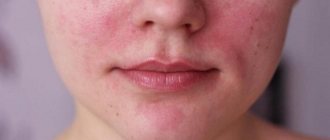Collagen is a building material necessary for the body. With a lack of protein, premature age-related changes appear due to failures in the functioning of internal organs. Collagen is found in food. It is responsible for the elasticity, firmness and strength of connective tissue: skin, ligaments, muscles, tendons, bones.
The substance is necessary for the adequate functioning of the body
What is collagen used for?
Natural collagen is found in many foods. A special protein is synthesized by dermal cells. It is noteworthy that the substance is a building material and a kind of glue that helps form and connect the cells of the body. It is the protein compound that gives tissues strength.
The substance is involved in the metabolism of muscle and connective tissue. Protein helps:
- strengthen cartilage, bones and joints;
- improve blood flow in muscles, skin properties;
- normalize cell functioning.
Important! Collagen makes up a third of the mass of protein.
There are 28 types of substances that are responsible for the following functions:
- protective;
- supporting;
- restorative.
At a young age, the elasticity of the skin is achieved by replacing old collagen fibers with new ones. The aging of the body is accompanied by the destruction of fibers. Sagging skin and the appearance of wrinkles are caused by a decrease in the production of protein compounds, which is caused by the following factors:
- hormonal imbalance;
- unbalanced diet;
- alcohol abuse and smoking;
- natural age-related changes;
- disturbance in metabolic processes;
- diseases of the digestive system and connective tissue;
- exposure to ultraviolet rays;
- prolonged stress.
Collagen fibers are produced by sex hormones:
- estrogen (in women);
- testosterone (in men).
It is known that the production of testosterone in men occurs more slowly than estrogen. This explains why signs of aging appear earlier in women.
Important! You can slow down the aging process by consuming foods that increase collagen production in the body.
What is collagen
Collagen is the most abundant protein in your body. It is made up of amino acids and is the main component of connective tissue. Collagen not only provides structure to the skin, but also helps strengthen bones and muscle structure, and promotes blood clotting.
To give you a mental picture, collagen is like a glue that holds your skin, muscles, bones, and connective tissues together. In fact, the word collagen comes from the Greek kolla, which means glue.
Collagen makes up about 75 percent of the skin's dry mass and about 30 percent of the body's total protein mass.
To date, 28 different types of collagen have been discovered, each serving a unique purpose. However, the most common are types I to III, described below:
- Type I – This type makes up 90 percent of the body's collagen and is made up of tightly packed fibers. Type I collagen provides structure to skin, bones, teeth, tendons, cartilage and connective tissue.
- Type II. Type II collagen, made up of looser fibers, is found in the elastic cartilage that cushions joints.
- Type III – This type of collagen supports the structure of internal organs and skin, being the main component of the extracellular matrix.
Because collagen is such an important component of skin structure, the integrity of your skin declines as you age. In fact, it is believed that collagen production begins to slow down at a rate of one percent every year after age twenty . Collagen production declines even further as you enter menopause, and can also be negatively affected by environmental and lifestyle factors.
Products containing large quantities of collagen (table)
The list of collagen products is quite lengthy. Protein is found in various components of the diet. The collagen content in food products is presented in the table:
In order to replenish the necessary substance, you need to pay attention to your diet. Products that help collagen production are of animal origin. Therefore, the diet should contain adequate amounts of meat. Plant products are also used to produce collagen in the skin, particularly their fibers. This is because they contain proteins that resemble the compound.
Meat
Foods high in collagen include meat. Specifically, bone broth contains protein in a bioactive form. Beef broth is an optimal source of type 1 collagen found in foods. This component has a positive effect on the appearance and condition of the skin.
Chicken and turkey broth contain type 2 protein. It is responsible for maintaining the function of the musculoskeletal system.
Foods that promote collagen production in the body
Products that have a direct impact on protein production are essential. These include vegetables, fruits, seeds, and dairy products.
Vegetables, fruits and berries
It is known that eating green leafy vegetables is considered to prevent diseases. Their beneficial property also lies in preventing the premature breakdown of collagen. Green vegetables contain chlorophyll, which increases the amount of prolagen in the skin.
Important! Chlorophyll has antioxidant properties that help prevent premature aging.
Tomatoes contain lycopene, which protects the skin from exposure to ultraviolet rays. The substance activates the production of protein compounds. To obtain a significant amount of lycopene, tomatoes must be subjected to heat treatment.
Avocado contains tocopherol, which prevents collagen breakdown. Avocado oil also includes retinol, which promotes the production of a protein compound. Berries (strawberries, blackberries, raspberries and cranberries) are sources of ellaganic acid. They prevent protein breakdown under the influence of ultraviolet rays.
Citrus fruits contain ascorbic acid. Vitamin C is a binding component for proline-forming amino acids. This component precedes the formation of collagen. The positive effects of ascorbic acid also include protection from harmful toxins.
Vegetables, berries and fruits increase protein digestibility
Nuts and seeds
Pumpkin seeds contain zinc, which stimulates collagen production and slows down its breakdown. Zinc accelerates cellular regeneration processes, which affects the speed of wound healing.
Attention! Roasted seeds contain more nutrients.
Chia seeds, which contain omega-3 (of plant origin), have a beneficial effect on the body. PUFAs ensure smoothness and elasticity of the skin. The seeds are added to baked goods and porridges.
Nuts contain essential components for the skin
Milk and dairy products
Dairy products contain vitamin D and calcium, which stimulate collagen production.
Dairy products provide the body with essential substances
Vegetable and animal oils
Vegetable oils contain vitamins E and A in significant quantities. These compounds activate protein production in tissues. Since animal products are a source of collagen, oils can compensate for the lack of a component in the body.
Vegetable oils contain many beneficial vitamins that have a beneficial effect on the skin.
Porridges and cereals
Many people wonder whether cereals contain collagen. Cereals promote protein production due to the vitamins and minerals they contain. Particularly valuable are:
- barley;
- oatmeal;
- rice (brown);
- corn;
- buckwheat;
- millet;
- sprouted wheat sprouts.
Cereals can have a beneficial effect on protein production
Other foods that stimulate collagen production
Promote protein synthesis:
- soy products due to the presence of genistein;
- beans due to their hyaluronic acid content;
- nutritional components containing vitamin A, manganese, copper, selenium;
- chocolate;
- garlic;
- dried fruits.
Mask for collagen production at home
Content
Collagen for the face can be prepared at home. Most women have the necessary ingredients in their kitchens. The tool will be clear in content, easy to use, and convenient for choosing the time for the procedure. For every woman there comes a time when she begins to notice changes in appearance. Modern means offered by cosmetology offer to stop the process of signs of aging. The most effective remedy is a collagen face mask. It can be done at home or with the help of professionals in the salon.
The importance of collagen for humans (and especially for women) is maintaining an impeccable appearance
Collagen helps maintain:
- The structure of hair curls;
- Quality of the nail plate;
- Mobility of the joints;
- Elasticity of blood vessels.
A decrease in the required amount of useful substances in the body leads to the appearance of cellulite. Almost every woman is familiar with him at a certain age. The substance is directly related to the loss of skin elasticity and the appearance of wrinkles.
If we examine the skin under a microscope in cross-section, three layers stand out:
- Epidermal;
- Dermal;
- Subcutaneous fatty tissue (SFA).
A decrease in the body's production of the required amount of collagen occurs:
- After 25-30 years;
- During the onset of menopause or its complete stop;
- With an incorrect lifestyle;
- Hereditary predisposition;
- From environmental pollution.
Products that destroy collagen
It is important to avoid eating foods that can cause the destruction of beneficial substances. These include:
- Sugar. It leads to adhesion or glycation, which causes loss and destruction of collagen fibers. It is known that the process of neutralizing glucose requires a significant amount of liquid, which reduces the elasticity of the skin. Sugar contributes to the appearance of inflammatory processes due to oxidation of the body.
Sugar destroys protein
- Alcoholic drinks. Alcohol is a poison. Its toxicity is visually noticeable after significant alcohol abuse. Drinks cause the development of inflammatory processes and dehydration. A significant portion of the necessary minerals and vitamins is consumed to eliminate the consequences. Thus, the skin does not receive enough important nutrients.
Alcoholic drinks poison the body if abused
- Tobacco. The nicotine contained in cigarettes destroys collagen fibers and reduces the production of estrogen. These hormones are responsible for the elasticity and youthfulness of the skin.
Tobacco smoking negatively affects the condition of the skin
- Margarine. The food component contains trans fats, which have a detrimental effect on the body. Cholesterol leads to loss of elasticity of the skin due to exposure to toxins and destruction of beneficial nutrients.
Margarine contains trans fats that are harmful to the body.
Attention! Ultraviolet rays and insufficient fluid intake cause collagen destruction.
